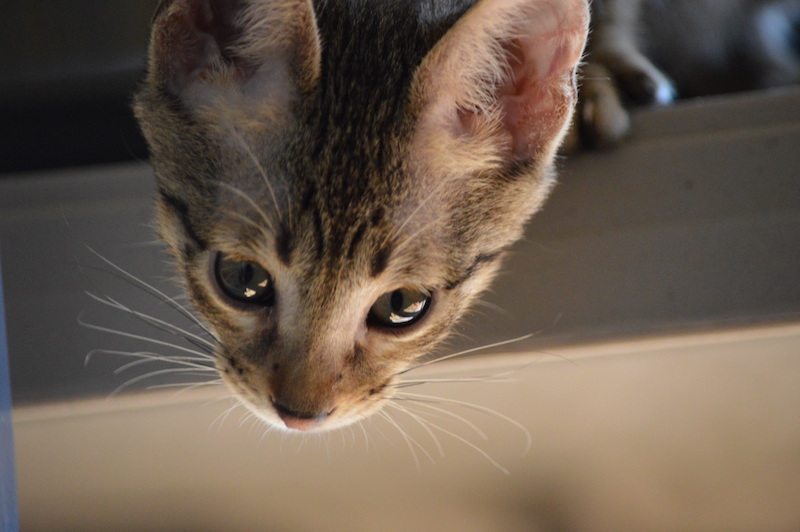Bringing home a new Savannah cat is a little like bringing home a baby. You can’t be fully prepared until it happens, and the early days will be a flurry of activity—getting to know one another, snuggling, and adapting your lives to your new family member. A little preparation can make for a smooth transition, helping everyone bond more quickly. Here’s how to get your house ready for your new Savannah cat.
Know How Savannah Cats Are Different
Savannah cats are more similar to wild cats than a cat you might adopt at a local shelter is. So it’s important to have realistic expectations about how your cat will behave in the first weeks. This is a highly intelligent, very athletic animal who needs time to warm up to its new family.
Knowing the filial generation of the cat you’re bringing home can help you plan. The lower the filial generation number, the more similar your new family member will be to its wild ancestors. That means these cats will require more exercise, more cat-proofing, and more time to warm up. Plan accordingly.
Set Aside Some Extra Time
If you’re planning a vacation or a work project, time them so that they don’t coincide with your new family member's arrival. Spending some extra time with your cat can help you bond. And spending long hours away can give rise to a destructive, anxious cat. It’s often helpful to bring your kitten home over a long weekend, then gradually transition back to work. A cat sitter or family member can help you ensure your kitten feels safe and loved when you’re not there. Lots of attention and exercise in these first weeks is critical, and this small investment will pay off for ears to come.
Create a Small, Cozy Space
Cats feel safest in small, confined spaces that give them the freedom to choose where to sleep. Your home, however loving, is a new and unfamiliar place. So don’t be surprised if your cat wants some time alone in the first few days. Create a small, safe, cat-proof space where your cat can easily hide and find some darkness. A small bathroom works well. Even a closet can work. To be an effective hiding cave, the space must:
Be completely safe—no dangerous plants or running water.
Allow your cat some privacy. If small children or dogs can get to your cat, this space won’t work.
Be accessible at all times. Your cat must be able to escape to this space whenever it wants.
Give your cat freedom of movement. Don’t lock your cat in a crate and assume this is an adequate space. Your cat must have the choice to go to the safe space, and must be able to move around when it wants.
Quarantine Your Cat
If you have other pets, quarantine your cat for at least five days. This gives everyone time to adjust to one another’s smells without fighting or territorial issues. It can also prevent the transmission of potentially dangerous infections. Once the quarantine period is up, gradually introduce your cat to your other animals. Ensure everyone can easily escape, and reward good behavior. Don’t leave your cat alone with other pets until you have observed them spending many, many hours together.
Plan for Plenty of Exercise
A well-exercised cat is a well-behaved cat. All cats become anxious and potentially poorly behaved when they don’t get enough exercise. Because Savannah cats are descended from wild cats, this is doubly true for them.
In the early days, your cat might be a little suspicious of you. So don’t count on being its sole source of exercise. Find a safe area for your cat to climb and jump as you get to know one another. Then work together to bond through play. Even shy cats can’t resist chasing a feather and jumping. So encourage your cat to play with you. Wear your cat out with play and you’ll quickly be best friends.
Hang On to the Familiar
Cats feel most comfortable around familiar smells. So help your cat feel safe by bringing something from its old home to your house. Rather than using new litter or a litter box, try using the litter and litter box your cat had before it came to live with you. A blanket, favorite toy, or other item from its previous home can also help ease the transition.
Cat-Proof Your House
Even if you plan to keep your cat in just one area of your home, cats are escape artists. Sooner or later, your cat will get into the rest of the house. And if you’re like most cat owners, you hope to eventually give your kitten the run of the house. A few simple cat-proofing tips
Protect Other Family Members (and Your Cat)
No matter how well you bond with your cat, it’s still an animal. Particularly in the early months, you should be cautious when your cat is around anyone it can hurt—especially small children. Do not allow a Savannah cat to sleep in a baby’s room, or to have unfettered access to rodents or other pets. Everyone in your family should have an area where they are safe from the cat. Perhaps most importantly of all, never allow small children to be alone with your cat.









